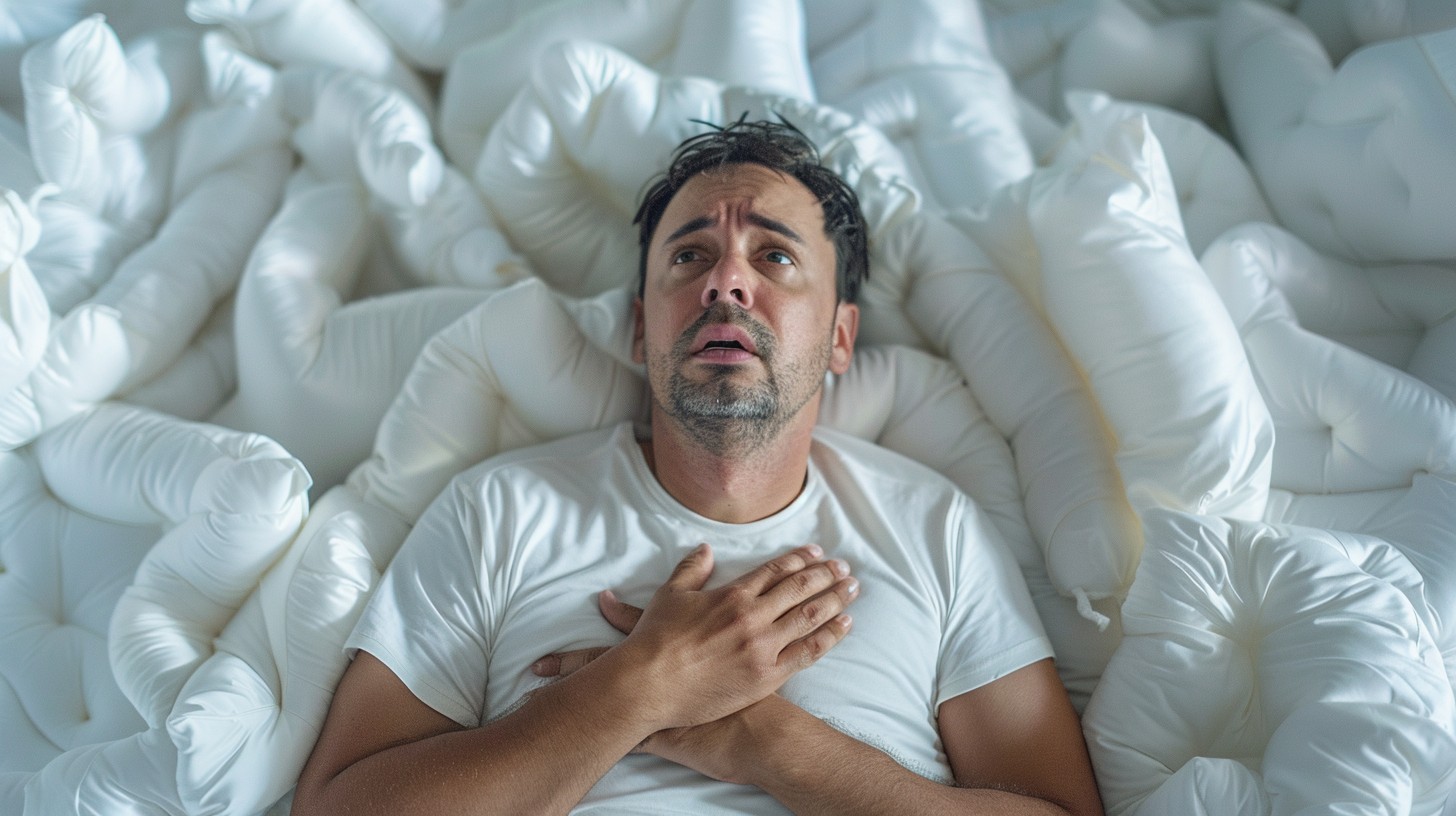Menopause marks the end of a woman’s reproductive years, typically occurring between ages 45 and 55. It results from a decrease in oestrogen and progesterone, leading to various physical and emotional symptoms. Hormonal fluctuations during menopause can increase the likelihood of experiencing panic attacks—sudden episodes of intense fear and physical reactions such as rapid heartbeat and difficulty breathing.
Recognising the connection between menopause and panic attacks and knowing how to manage these episodes can help women maintain their well-being during this transitional phase.
What Is Menopause?
Menopause is a natural biological process that marks the end of a woman’s reproductive years. It is defined as occurring 12 months after a woman’s last menstrual period and typically happens between the ages of 45 and 55, though it can vary widely.
During menopause, the ovaries gradually reduce their production of oestrogen and progesterone, two key hormones that regulate menstruation, reproductive functions as well as mood. This decrease in hormone levels leads to the cessation of menstrual cycles.
What Is A Panic Attack?
A panic attack is when you experience a sudden episode of intense fear that triggers psychological reactions. You may struggle to breathe, feel sick, you might experience tremors, and feel that you have no control over the current situation that you are facing. The period for panic attacks is different for each person, some can last a few minutes while others can last up to an hour. Many individual factors contribute to panic attacks.
Some panic attacks can be frightening, it might feel like you are having a heart attack or that you are even dying. Panic attacks can hurt your quality of life.
What Are Perimenopause Panic Attacks?
Generally, it is common for panic attacks to be more prevalent during menopause due to hormonal changes. Every 1 out of 4 women will experience anxiety during menopause, this includes panic attacks. It might even be the first ever panic attack you experience. Menopausal hot flashes can also increase the chances of you having a panic attack. You might feel worried and self-conscious about sweating in public during a hot flush.
Signs Of A Panic Attack
During a panic attack, your body experiences an intense rush of psychological and physical changes. A panic attack can sometimes just appear without a warning or any sign that it is on the way. Symptoms of a panic attack include the following:
- Racing heartbeat
- Feels like you are going to faint
- Sweating
- Struggling to breathe
- Dizziness
- Dry mouth
- Stomach cramps
- Trembling/shaking
Panic attacks can feel intense and terrifying. You are most likely going to feel out of control at that moment. You might gasp for air and start crying which is all normal for a panic attack. Your heart rate might be so high that it might feel like you are dying.
Getting yourself back to normal during a panic attack can be a real challenge. Most panic attacks last only for 5 to 20 minutes, but some can even last up to an hour. It is normal to feel embarrassed, vulnerable, and fragile after a panic attack. It takes a while to recuperate after a panic attack.
What To Do During A Panic Attack?
The first thing you need to realise is that it is not life-threatening, and do not try to fight it. It is important to remember that the panic attack is temporary and that it will pass. If you have had a panic attack before, you know what to expect and comfort yourself.
Mindful Breathing
Stay where you are and try to breathe slow and deep breaths. Focus on your breathing for that moment, count to four as you breathe in and again when you breathe out.
Relaxation Techniques
Yoga, meditation, and mindfulness can help manage stress and anxiety; this will help prevent panic attacks from happening. Being able to calm your body and mind during a panic attack can reduce the intensity of the attack. It may seem obvious but reducing stress in your life can have a significant impact on reducing panic attacks.
Diet And Caffeine
Eating healthy can also reduce stress levels. Reducing your daily caffeine and alcohol intake can decrease stress levels. Caffeine is known to make people jittery and increase your heart rate, this can make your anxiety worse.
Therapy
Speaking to a medical professional is a good option, some specialists will give you tools to use as coping mechanisms during a panic attack. Some doctors might feel it is necessary to prescribe you medication to help with stress and anxiety.
Supplements
Taking the supplement Vitamin B6 (pyridoxine) can help with anxiety. Pyridoxine increases the production of serotonin (also known as the happy hormone). As women age serotonin levels fluctuate which can also contribute to mood swings and depression. Magnesium supplements can help brain function such as mood regulation and stress response. This can help decrease the onset of depression and anxiety.
When Should I See A Doctor?
If you feel that panic attack is influencing your quality of life, then it is advised that you seek professional help. Regular panic attacks can indicate a panic disorder, which is characterised as feeling anxious and stressed for no apparent reason. Make sure you see a healthcare professional who makes you feel safe, this will help you explain the symptoms you are experiencing.










